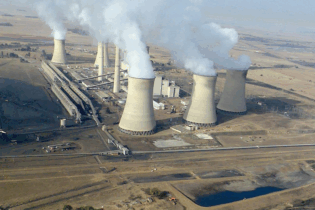The Development Bank of Southern Africa (“DBSA”) and the Industrial Development Corporation (”IDC”) announced, that they have committed project development funding to Mitochondria Energy Company, a local South African business that was established with the purpose to provide affordable, reliable and sustainable energy services.
The funding is to complete the bankable feasibility study of a stationary fuel cell energy solution. The project aims to strengthen the energy sector in South Africa by providing a locally-produced fuel cell technology. The primary objectives of this project are to design of a 250kW fuel cell system, build a facility to commercially manufacture the fuel cell units and the commercial manufacturing and sale of the fuel cell units. Christo Fourie, IDC’s Head of Energy, says the IDC is excited to co-develop this project, which will localise the manufacture of fuel cell units ensuring that the technology and intellectual property is South African-based. “Project Phoenix will support IDC’s developmental objectives by creating jobs, increasing demand of locally produced minerals like chromium, iron and zirconium; replacement of imported power generation equipment (e.g. Gas engines); localisation of the manufacture of some of the fuel cell components and supporting a Black Industrialist venture,” said Fourie.“This project will eventually contribute to the reduction of greenhouse gases and is aligned to the IDC clean energy strategy.”
The secondary objectives of the project include stimulating the demand for fuel cell energy generation systems to encourage its use as a source of cleaner energy in industries; and promoting the use of combined heat and power (CHP) from fuel cells. Mitochondria CEO, Mashudu Ramano says they are thrilled to have the IDC and the DBSA join them in developing a solution that can harness local demand to drive new industry formation and “lay the foundation for the country to be a serious player in the emerging hydrogen economy.” “Mito’s aim is to realise South African economic and manufacturing dividend by achieving global competitiveness in fuel technology, not excluding the potential for significant foreign earnings. This partnership with our country’s leading development finance institutions, supports the long-term vision of Mitochondria to stimulate the demand for fuel cell energy generation systems in Africa,” Ramano said further. The advantages of deploying fuel cells include:- Climate Change Mitigation
- Emissions
- Lower CO2 (60% less)
- No nitrogen oxides, sulphur oxides and particulate matter
- Minimal noise pollution
- Emissions
- Water use
- Zero water consumption
- Water produced as a by-product
- Safe Technology to operate / reduces the risk of chemical exposure
- Operational Cost reduction
- High electrical efficiency (up to 60%) and Combined Heat and Power over 90%
- Low maintenance cost (novel electrochemical process)
- Ability to withstand adverse and harsh environmental conditions
- Economic Advantages
- stimulate local manufacturing for balance of plant parts
- new Industry formation
- mitigate climate change impacts
- reskilling of the workforce







